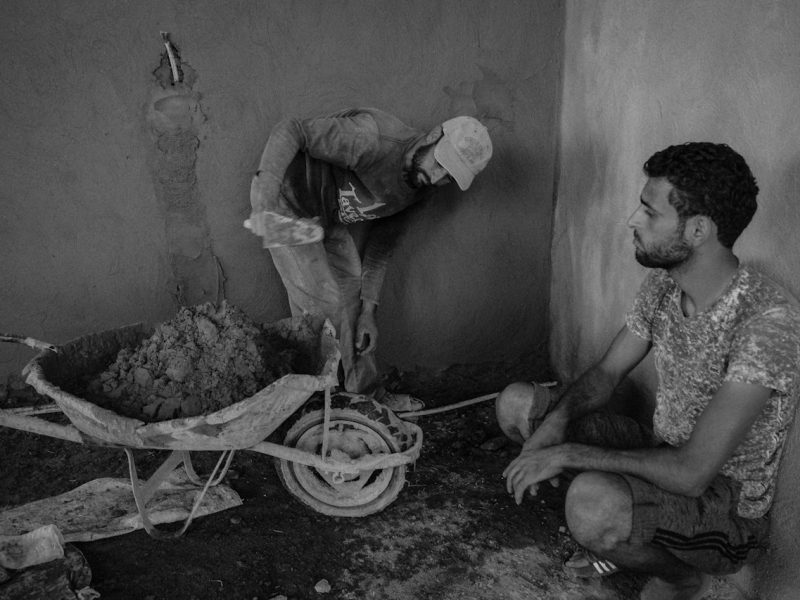[…] We know that Joseph was a lowly carpenter (cf. Mt 13:55), betrothed to
Mary (cf. Mt 1:18; Lk 1:27). He was a “just man” (Mt 1:19), ever ready to carry
out God’s will as revealed to him in the Law (cf. Lk 2:22.27.39) and through four
dreams (cf. Mt 1:20; 2:13.19.22). After a long and tiring journey from Nazareth
to Bethlehem, he beheld the birth of the Messiah in a stable, since “there was no
place for them” elsewhere (cf. Lk 2:7). He witnessed the adoration of the
shepherds (cf. Lk 2:8-20) and the Magi (cf. Mt 2:1-12), who represented
respectively the people of Israel and the pagan peoples.
Joseph had the courage to become the legal father of Jesus, to whom he gave
the name revealed by the angel: “You shall call his name Jesus, for he will save
his people from their sins” (Mt 1:21). As we know, for ancient peoples, to give a
name to a person or to a thing, as Adam did in the account in the Book of
Genesis (cf. 2:19-20), was to establish a relationship. […]
[…] In the Temple, forty days after Jesus’ birth, Joseph and Mary offered their
child to the Lord and listened with amazement to Simeon’s prophecy concerning
Jesus and his Mother (cf. Lk 2:22-35). To protect Jesus from Herod, Joseph
dwelt as a foreigner in Egypt (cf. Mt 2:13-18). After returning to his own
country, he led a hidden life in the tiny and obscure village of Nazareth in
Galilee, far from Bethlehem, his ancestral town, and from Jerusalem and the
Temple. Of Nazareth it was said, “No prophet is to rise” (cf. Jn 7:52) and indeed,
“Can anything good come out of Nazareth?” (cf. Jn 1:46). When, during a
pilgrimage to Jerusalem, Joseph and Mary lost track of the twelve-year-old
Jesus, they anxiously sought him out and they found him in the Temple, in
discussion with the doctors of the Law (cf. Lk 2:41-50).
In the second dream, the angel tells Joseph: “Get up, take the child and his
mother, and flee to Egypt, and remain there until I tell you; for Herod is about to
search for the child, to destroy him” (Mt 2:13). Joseph did not hesitate to obey,
regardless of the hardship involved: “He got up, took the child and his mother by
night, and went to Egypt, and remained there until the death of Herod” (Mt
2:14-15).
In Egypt, Joseph awaited with patient trust the angel’s notice that he could
safely return home. In a third dream, the angel told him that those who sought
to kill the child were dead and ordered him to rise, take the child and his mother,
and return to the land of Israel (cf. Mt 2:19-20). Once again, Joseph promptly
obeyed. “He got up, took the child and his mother, and went to the land of
Israel” (Mt 2:21).
During the return journey, “when Joseph heard that Archelaus was ruling over
Judea in place of his father Herod, he was afraid to go there. After being warned
in a dream” – now for the fourth time – “he went away to the district of Galilee.
There he made his home in a town called Nazareth” (Mt 2:22-23).
The evangelist Luke, for his part, tells us that Joseph undertook the long and
difficult journey from Nazareth to Bethlehem to be registered in his family’s town
of origin in the census of the Emperor Caesar Augustus. There Jesus was born
(cf. Lk 2:7) and his birth, like that of every other child, was recorded in the
registry of the Empire. […]




